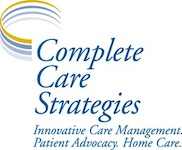Sarah watched as her mother meticulously set the Thanksgiving table – for the third time that morning. The silverware was perfectly aligned, but something was different. This year, Mom had placed settings for her own parents, who had passed away decades ago. Instead of correcting her, Sarah pulled up a chair and asked, “Tell me about Grandma’s favorite Thanksgiving dish?”
Her mother’s face lit up, and for the next hour, they shared stories about holidays past. This moment of connection might never have happened if Sarah had simply pointed out her mother’s mistake. When cognitive decline enters our holiday celebrations, it often arrives uninvited and unwelcome. Yet, within this challenge lies an opportunity to create meaningful connections in unexpected ways. As an Aging Life Care Manager™, I’ve witnessed countless families transform potentially stressful situations into touching moments of joy and understanding. Standard holiday tips often suggest simplifying celebrations or maintaining strict routines. While well-intentioned, these one-size-fits-all approaches miss something crucial: each family’s journey with cognitive decline is unique. This is where the expertise of an Aging Life Care Manager becomes invaluable.
The Professional Edge: Why Aging Life Care Managers Make a Difference
- Personalized Strategy Development
- We don’t just manage conditions; we understand your loved one’s unique story, preferences, and triggers.
- Holistic Family Support
- We support not just the person with cognitive decline, but the entire family system.
- Expertise in Crisis Prevention
- Our experience helps families avoid common holiday pitfalls and challenges.
- Professional & Personal Experience
- Our expertise combines professional training with real-world experience in navigating family dynamics.
- Proactive Problem-Solving
- We anticipate challenges before they arise, helping you plan rather than react.
- Family Mediation
- We help align family members’ expectations and create unified approaches to care.
Practical Strategies That Work
- Create Memory Stations
- Set up areas around your home with old photos and familiar objects. These become natural conversation starters and safe spaces for your loved one to engage.
- The Power of Parallel Activities
- Instead of correcting your loved one’s attempts to “help,” create safe, parallel tasks. If they want to set the table repeatedly, have them fold napkins instead.
- Sensory Anchors
- Use familiar holiday scents and sounds to create a comforting environment. That apple pie recipe from Mom’s cookbook might trigger more than just hunger.
When the Unexpected Happens
Janet, one of our clients, shared this story: “Dad became agitated during our Thanksgiving dinner, insisting he needed to ‘go to work.’ Our Care Manager had prepared us for this possibility. Instead of arguing, we gave him his old briefcase to organize. He calmed down immediately and joined in the family conversations.”
Looking Ahead: Beyond the Holiday Season
The strategies and support systems we help you develop for Thanksgiving create a foundation for year-round success. Our involvement doesn’t end when the leftovers are packed away – we’re here for the long journey.
Your Next Step
Don’t wait for a holiday crisis to seek support. Contact us today to begin developing your personalized holiday strategy. Your family’s peace of mind is worth it.
About the Author
As CEO of Complete Care Strategies, Rebecca Roskey-Brunner leverages over 20 years of experience as a Registered Nurse and Certified Care Manager to serve clients with special needs, the medically complex, and older adults facing health challenges to improve their quality of life. As an Aging Life Care Professional, Rebecca brings deep expertise in individualized care planning, dementia care, care coordination, and crisis prevention for vulnerable seniors.

